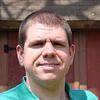Take a photo of a barcode or cover
This is a terrifying, yet very important read. It can be difficult to read at times, but the truth is, that the author described our current reality. We have to take action, before it's too late. Global warming is not a joke, and we can't ignore it any longer.
informative
slow-paced
challenging
informative
reflective
sad
slow-paced
The scariest book I've ever listened to. It deserves listening to it once more, because I am pretty sure I did not manage to "digest" it all.
Really well written and interesting, but also depressing.
Disappointing. Jumbled, repetitive format and writing. The repetition isn’t even helpful because of how condescendingly the book is written. The statistics were buried under SAT vocab words that make the book inaccessible, which should not be the case for such an important topic.
this book is a sobering kick in the pants and one I needed to really think deeply about what climate change really means for humanity and the planet. we need to make massive changes to our world and we needed to do it yesterday but, given we didn’t, today is what we have.
The Uninhabitable Earth was my non-fiction read for March 2019.
I first heard about this book on PBS News Hour, when Hari Sreenivasan described the book as gripping non-fiction. Having blogged for years about climate on another venue, I was drawn to the book. What would life after warming be like? Wallace-Wells has painted a picture that is frightening but not without hope. Comprising all aspects of global warming- from heat death to hunger to drowning, wildfires, freshwater (potable) loss to dying oceans, the impact of air pollution, plagues of tropical diseases, economic collapse and the immigrant conflicts of climate refugees, we gain a broad view of the impact of climate change and the certainty that much as it is human-caused, the solutions, or more accurately, the staying of further change, are in human hands, as well.
Addressing issues as vast as capitalism's culpability and saving graces to answers to the Fermi paradox from an industrialized civilization paradigm, The Uninhabitable Earth should be on every responsible citizen of this planet's reading list. While Swedish teen political activist Greta Thunberg isn't wrong about realizing your house is on fire, David Wallace-Wells wants this, our near future, to be humanity's finest hour. The political will of major world powers is the essential component to his future view veering from disaster.
Don't avoid this book from fear and thinking it's a negative take. It's a pragmatic take about where we need to focus our efforts. The same approach as the Manhattan Project, focused on climate, could literally save this pale blue dot. Read this book and shout about it.

I first heard about this book on PBS News Hour, when Hari Sreenivasan described the book as gripping non-fiction. Having blogged for years about climate on another venue, I was drawn to the book. What would life after warming be like? Wallace-Wells has painted a picture that is frightening but not without hope. Comprising all aspects of global warming- from heat death to hunger to drowning, wildfires, freshwater (potable) loss to dying oceans, the impact of air pollution, plagues of tropical diseases, economic collapse and the immigrant conflicts of climate refugees, we gain a broad view of the impact of climate change and the certainty that much as it is human-caused, the solutions, or more accurately, the staying of further change, are in human hands, as well.
Addressing issues as vast as capitalism's culpability and saving graces to answers to the Fermi paradox from an industrialized civilization paradigm, The Uninhabitable Earth should be on every responsible citizen of this planet's reading list. While Swedish teen political activist Greta Thunberg isn't wrong about realizing your house is on fire, David Wallace-Wells wants this, our near future, to be humanity's finest hour. The political will of major world powers is the essential component to his future view veering from disaster.
Don't avoid this book from fear and thinking it's a negative take. It's a pragmatic take about where we need to focus our efforts. The same approach as the Manhattan Project, focused on climate, could literally save this pale blue dot. Read this book and shout about it.

informative








